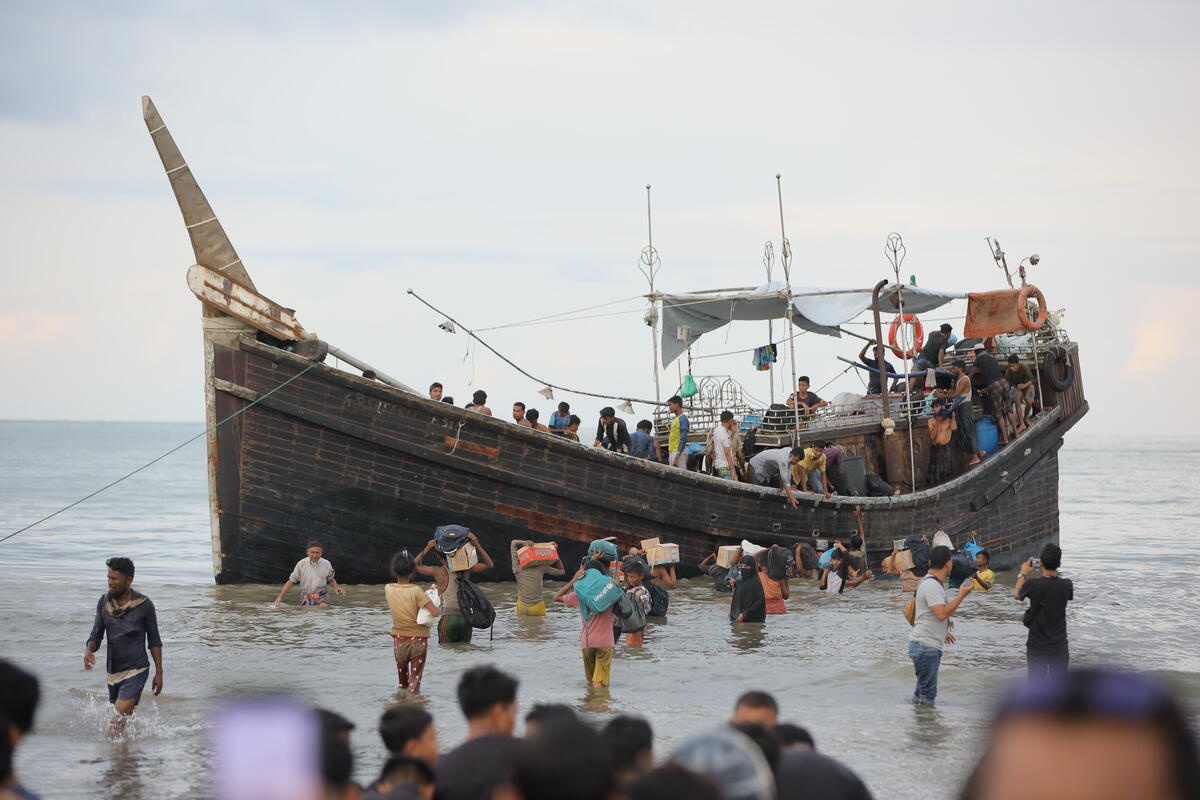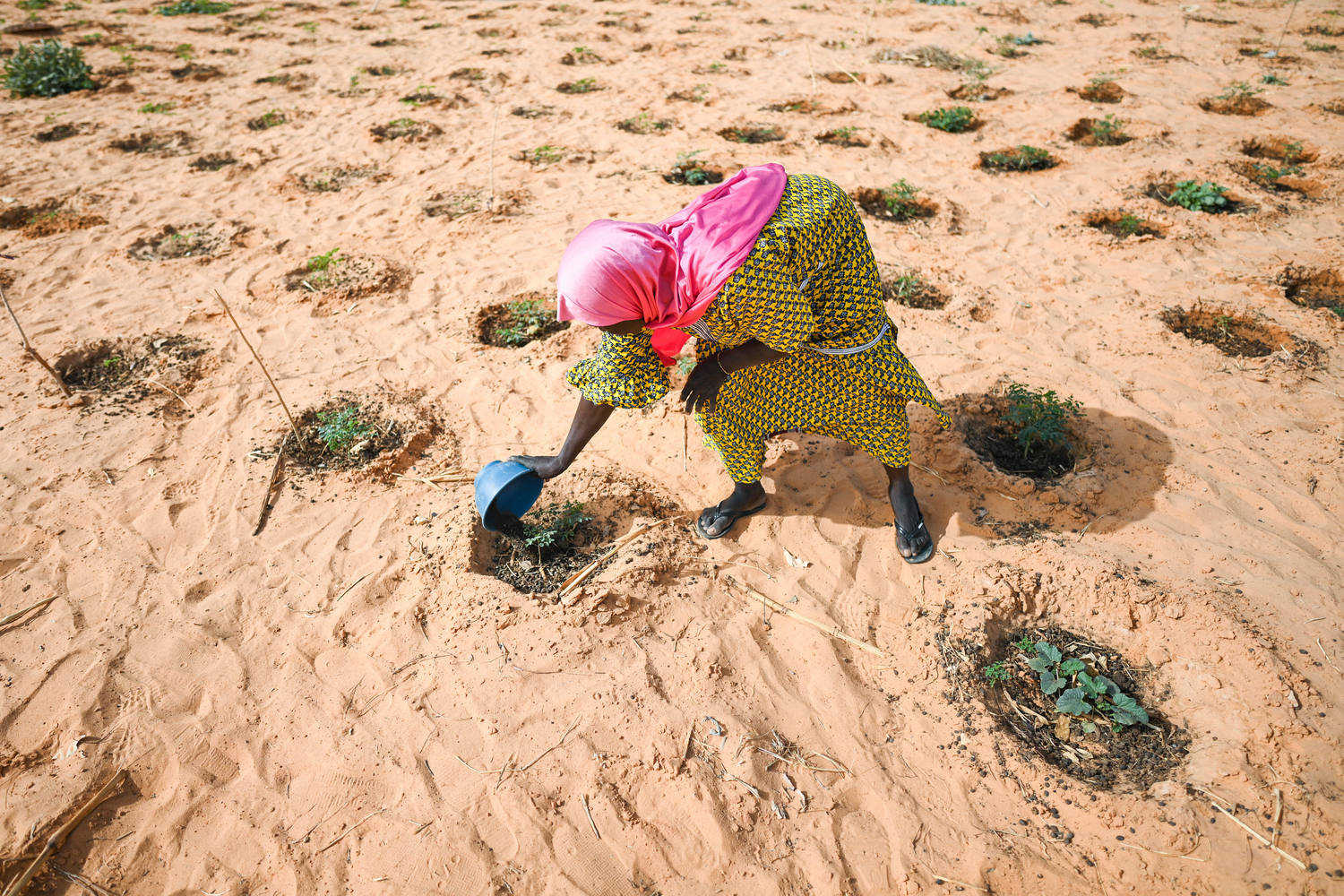Stateless people
Stateless people
UNHCR advocates for their rights and works to prevent and end statelessness globally.

Arnel smiles as he reads his name on his birth certificate for the first time. This critical document will help him prove his identity as a national of the Philippines, ensuring he is not at risk of becoming stateless.
What is statelessness?
Millions of people around the world are denied the right to a nationality, leaving them stateless. As a result, they may be unable to access other basic rights and services, such as being able to go to school, work legally, access health care or get married. They are also often at a higher risk of exploitation and abuse.
UNHCR’s statistical reporting counts 4.4 million stateless people. Given that most countries do not report statelessness data, the actual figure is believed to be substantially higher. Stateless people can be found in almost every country and in all regions of the world, and most live in the same country in which they were born.
Stateless people face a lifetime of missed opportunities and disappointment.
When they are born, their parents may not be able to register their birth, obtain a birth certificate or other legal identity documents. Without this, they often cannot be enrolled in school. If they do manage to enter school and receive an education, they may be barred from sitting formal exams to progress or enter university, unless they can prove their legal identity.
As an adult, they may not be allowed to work legally, leaving them at an increased risk of exploitation and abuse as they take low-paying and informal jobs. They often cannot access public services, like health care and must rely on costly private clinics. They also frequently cannot open a bank account, vote, get a passport to travel, buy a home or even get married.
Stateless people cannot confer a nationality on their children. If the child is unable to obtain a nationality through the other parent or from the country of birth, they will also end up stateless, perpetuating statelessness across generations.
Stateless definition and meaning
"A person who is not considered as a national by any State under the operation of its law."
- 1954 Convention Relating to the Status of Stateless Persons (Article 1)
What is the difference between a stateless person and a refugee?
A stateless person is not considered a national of any country. A refugee is someone who has fled their country to escape conflict or persecution and has crossed an international border. While most refugees have a nationality, a person can be both stateless and a refugee. However, the majority of stateless people live within the country in which they were born and have never crossed an international border. UNHCR works to protect both stateless people and refugees.
How does someone become stateless?
Statelessness can be caused by a range of factors. Some people are born stateless but others become stateless later in life.
- Gaps in nationality laws: Every country has laws that establish how someone acquires nationality and becomes a citizen. If these laws are not carefully written and applied, some people can fall through the gaps and be left stateless. An example is children who are born in a country where nationality is acquired based on descent, but whose parents have the nationality of another State which they cannot confer.
-
Discrimination: In many cases, statelessness is the result of laws and policies that discriminate on the basis of race, ethnicity, religion or language. This can cause large-scale and protracted statelessness in the country of birth that lasts generations. States can also deprive people of their nationality through changes in laws that use discriminatory criteria, making entire communities stateless overnight. In fact, the majority of the world’s known stateless populations belong to minority groups.
Gender discrimination in nationality laws is also a significant cause of statelessness. The nationality laws in some countries do not let women pass on their nationality to their children on an equal basis with men. Consequently, children can be left stateless when fathers are stateless, unknown, missing or deceased.
-
New States and borders: The emergence of new countries or changes in borders can lead to statelessness. Specific groups may be left without a nationality, even when the new countries allow nationality for all. Ethnic, racial and religious minorities may also have trouble proving their link to the country.
-
Loss or deprivation of nationality: Citizens of some countries can also lose their nationality if they have lived outside their country for a long time.
Individuals may also be at risk of becoming stateless if they cannot prove that they have links to a country. Lack of birth registration can create such a risk as a birth certificate provides proof of where a person was born and parentage – key information needed to establish a nationality.
Ending statelessness
Governments establish who their nationals are. This makes them responsible for legal and policy reforms that are necessary to effectively address statelessness. However, UNHCR, other agencies, regional organizations, civil society and stateless people all have roles to play in supporting their efforts.
UNHCR is determined to end statelessness. We help stateless people to acquire a nationality and work to prevent new cases of statelessness from emerging. We do this by working with governments to strengthen and change nationality laws, policies and procedures.
Since 2014, UNHCR's work has seen more than 500,000 stateless people acquire a nationality. Tens of thousands more are also now on the pathway to citizenship as a result of legislative change.
Statelessness is a man-made problem. It can be prevented and ended through:
-
Eliminating discrimination on the basis of race, ethnicity or religion in nationality laws.
-
Removing gender discrimination from nationality laws so women can pass on their nationality to their children on an equal basis as men.
-
Ensuring that nationality laws contain key legal safeguards to prevent children from being born stateless, for instance to grant nationality to children born on the territory of a State if they would otherwise be stateless.
-
Registering every birth to help establish legal proof of parentage and place of birth, which are key to establishing proof of nationality.
-
Issuing nationality identification documentation to those with entitlements to it so they can prove their nationality.
UN Conventions on Statelessness
Two UN Conventions form the legal cornerstones of UNHCR's work to end statelessness. The 1954 Convention established the definition of a stateless person and outlines the minimum standards for their treatment. The 1961 Convention aims to prevent statelessness from occurring at birth and later in life.
Text and media 20
Meepia granted citizenship after 34 years of being stateless
The day I held the Thai ID card in my hand, I felt happiness and massive relief. I now have the same rights. I don’t have to live in fear anymore.
Meepia’s birth was never registered, leaving her with no legal status in Thailand, the country where she was born.
Unable to provide identity documents, she was forced to leave school after the second grade. As an adult she could only find labour-intensive farming work for which she was paid less than US$3 a day. She was also afraid to leave her village after being stopped and fined at a police checkpoint for not having an ID.
However, in 2022, she was finally recognized as a Thai citizen. Now she hopes she may be able to work at one of the hotels in the region where she lives, which would not hire her before.
Please consider donating today
Your gift can help protect someone forced to flee their home due to conflict or persecution.







